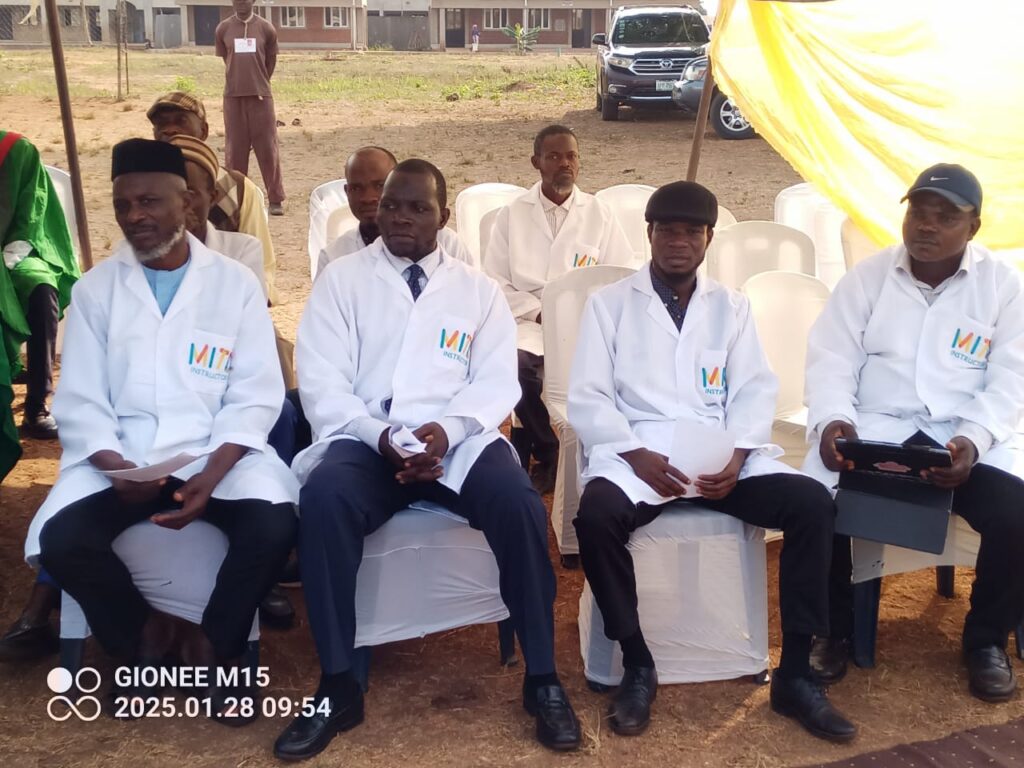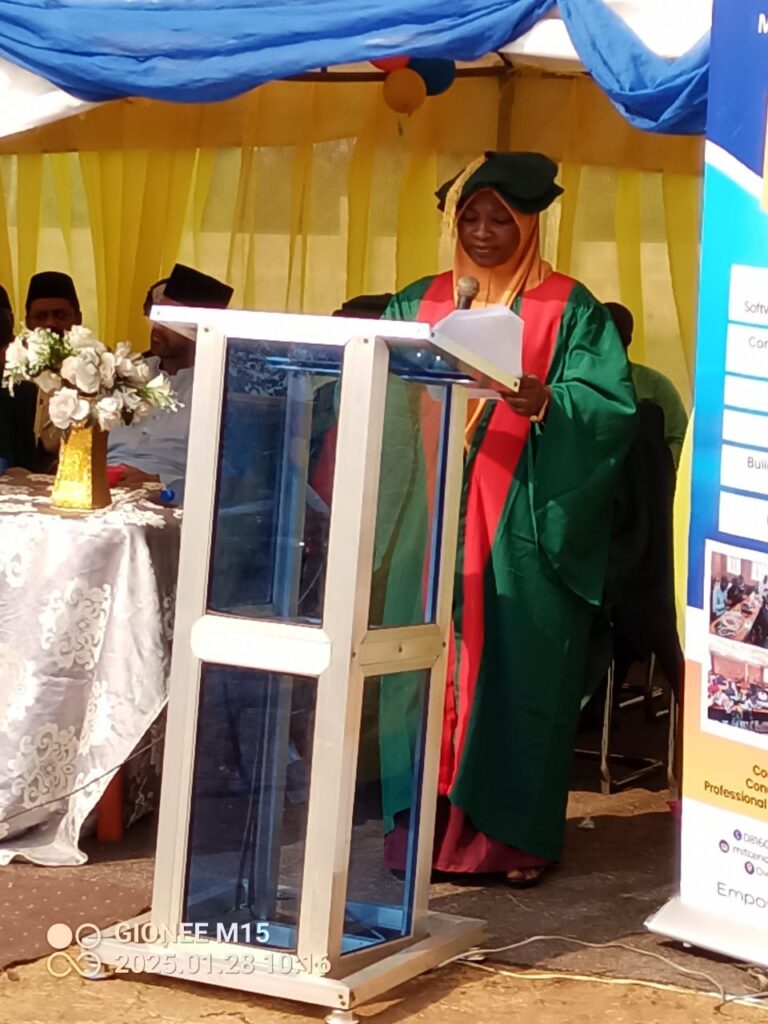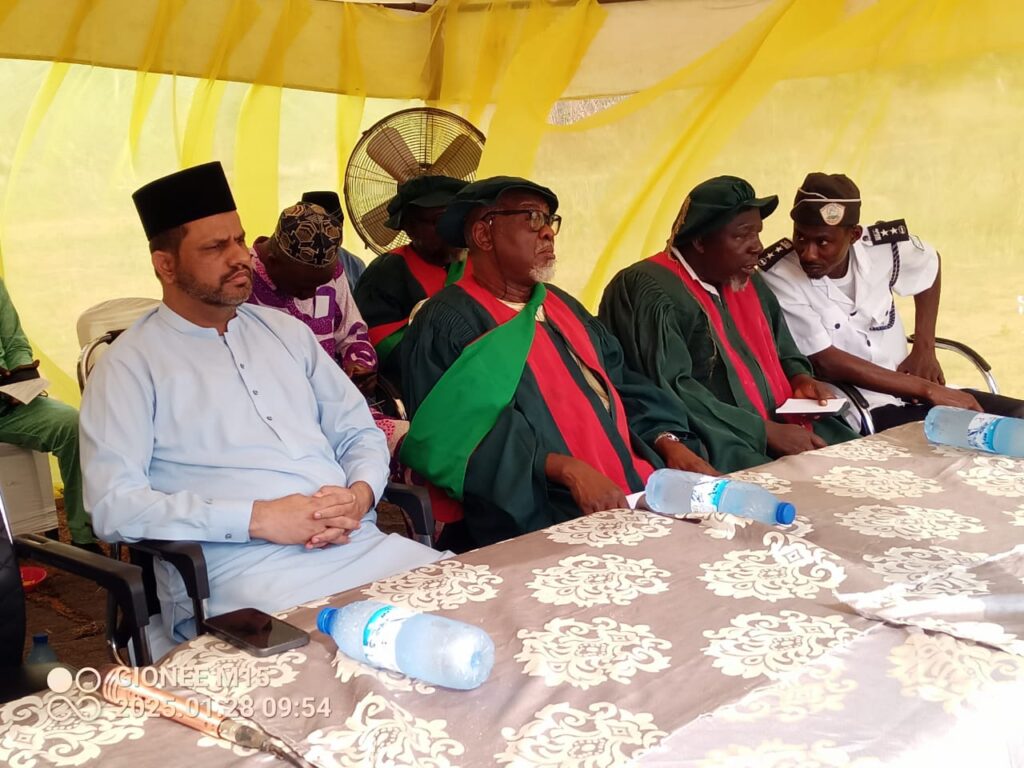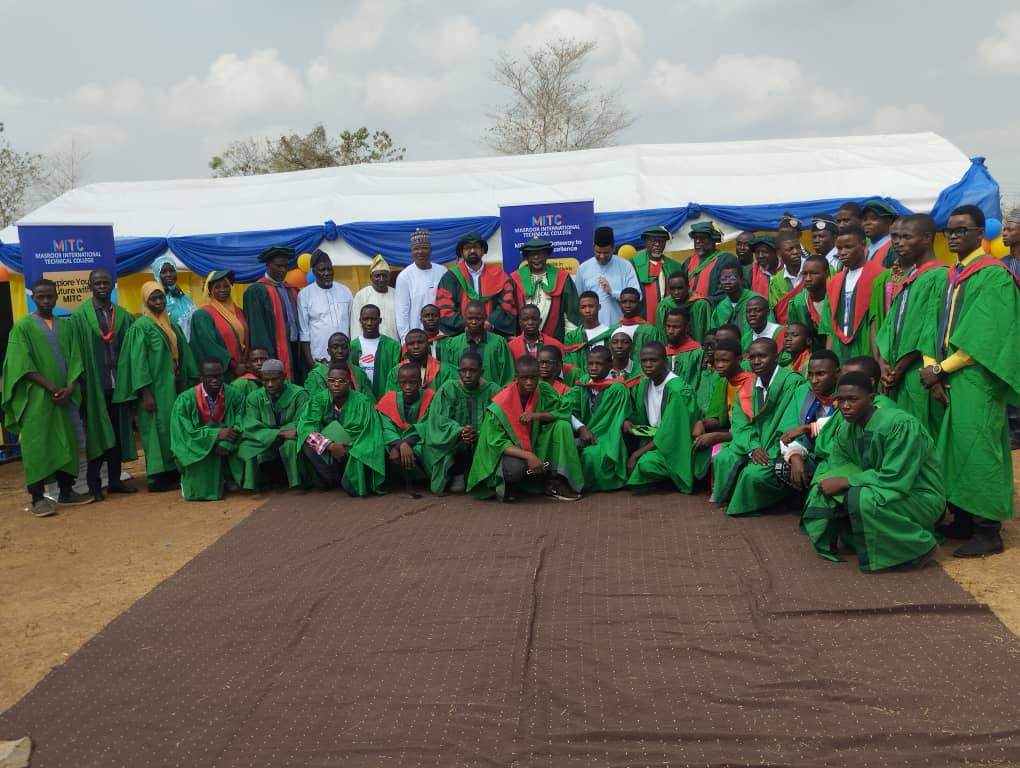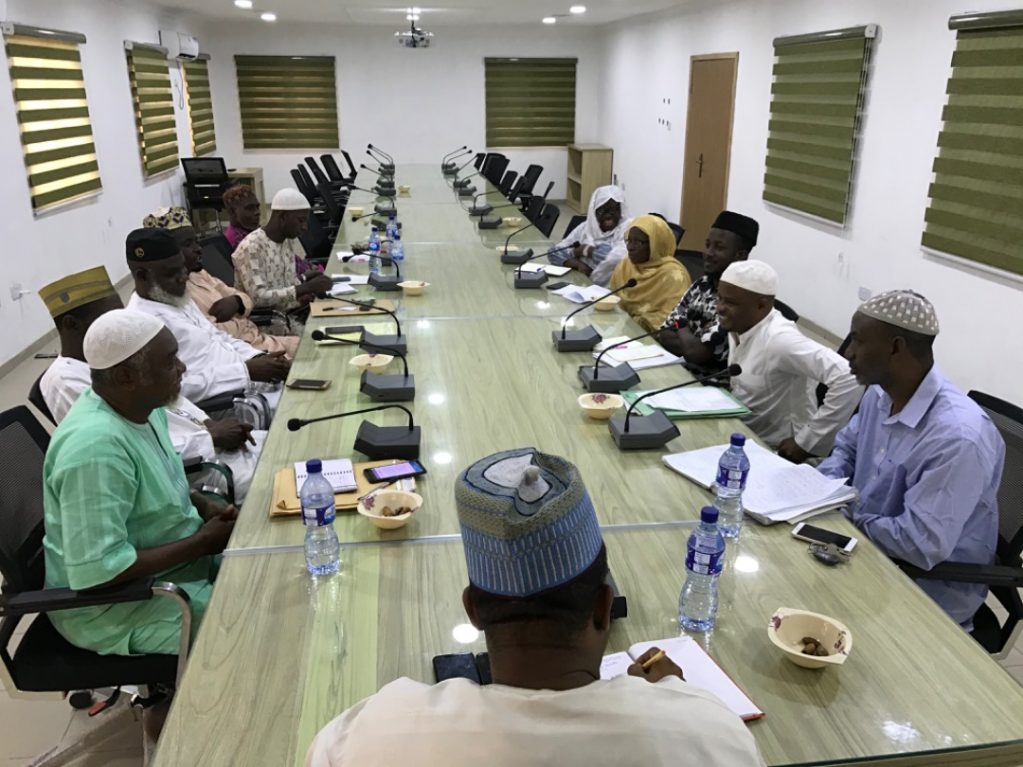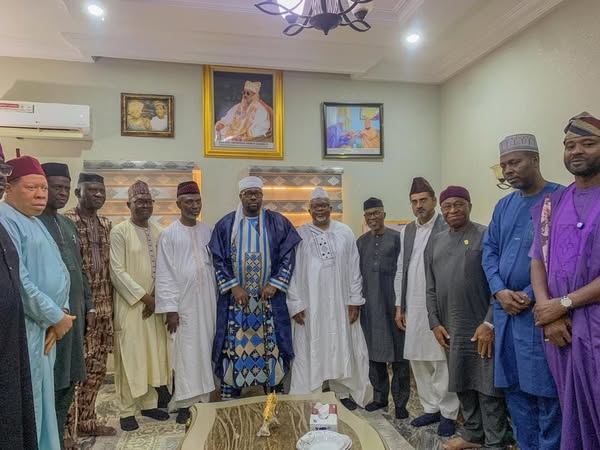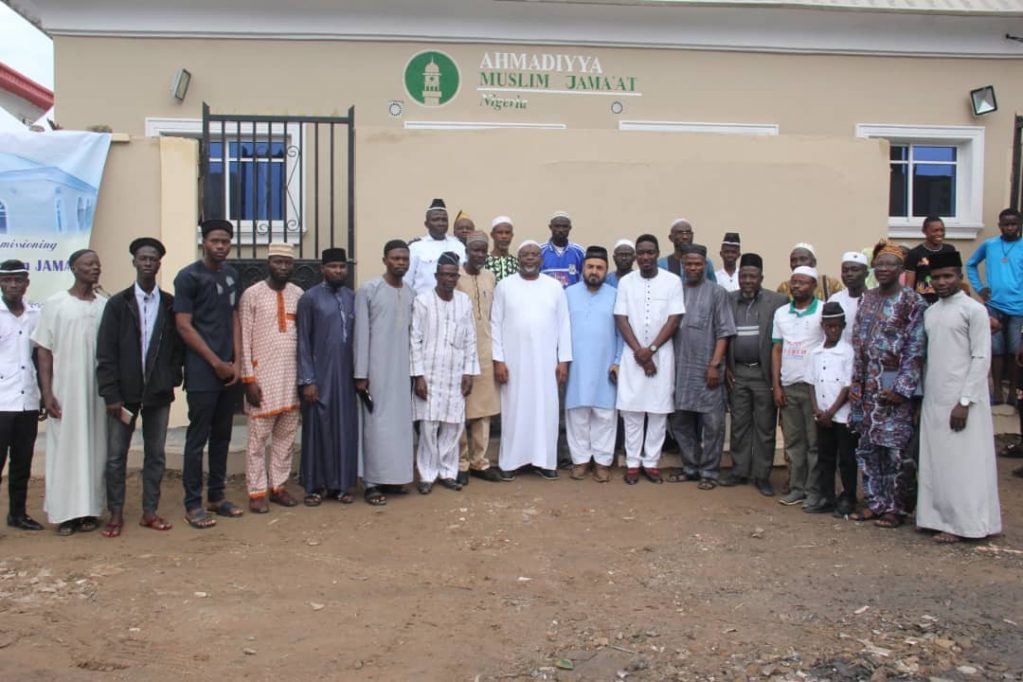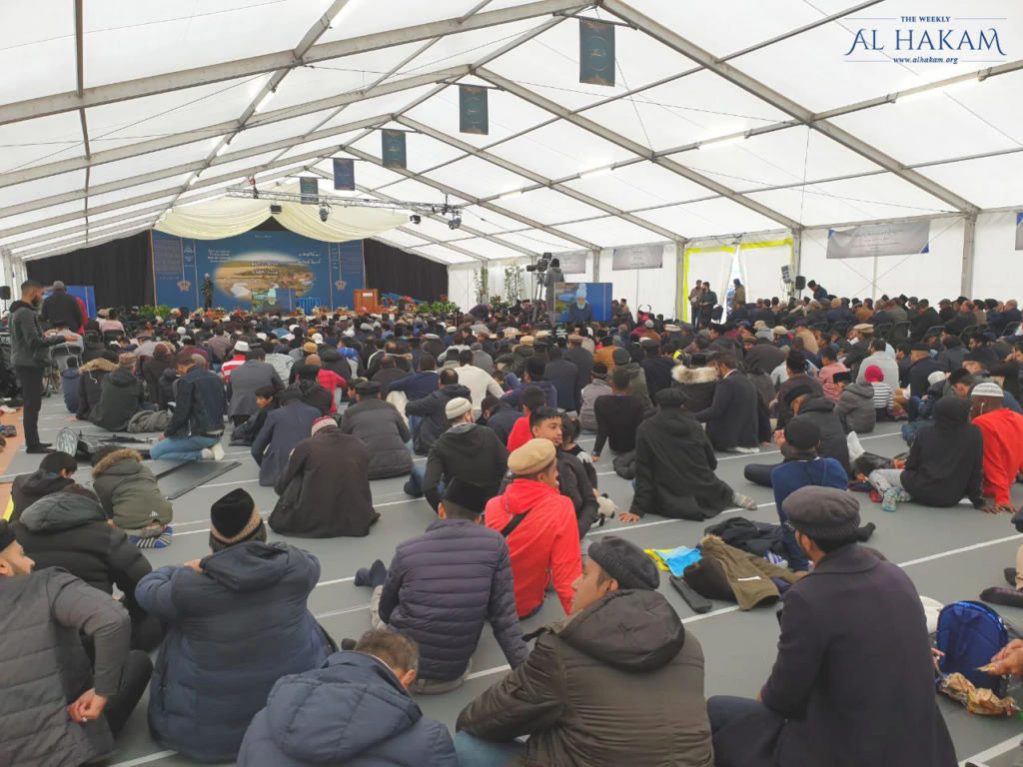The Lajna session started with the recitation of the Holy Quran by Anam Khalon Sahiba, who recited verses 21-22 of Surah al-Hadid (chapter 57). Hajrah Hadi Sahiba presented the Urdu translation. The verses highlighted that man tends to take this world as “nothing but (temporary) enjoyment” and competition with one another in attaining riches. In comparison to this, one should vie with one another in seeking forgiveness and attaining heaven that has been prepared for believers. Next, an Urdu poem written by the Promised Messiah, peace be upon him, was read out by Amatul Basir Mansoor Sahiba. The couplets drew attention towards the hereafter and the fact that all will be presented in front of our Lord. Believers should always remember that Allah can alleviate all problems and one should plead only before Allah. Hazrat Amirul Momineenaa then presented awards of academic excellence to 39 Lajna members, including international students. Thereafter, Hazrat Khalifatul Masih Vaa addressed the congregation. After Tashahud, Ta‘awuz and the recitation of Surah al-Fatihah, Hazrat Amirul Momineenaa stated that as he had mentioned in his recent Friday Sermon, the world is moving away from God. A lot of people reject the existence of God in this society; this trend has also affected some Ahmadis, both young and old. Hazrat Amirul Momineenaa said that in such an atmosphere, it is essential to bring oneself and one’s children closer to Allah. Elders should present such examples in front of children that enable them to draw closer to Allah and His love. This responsibility is for men and women both. Allah and His Prophetsa have placed the responsibility of the upbringing of children upon mothers, and this is no easy task. Mothers present their children in the scheme of Waqf-e-Nau but cannot just leave them to their fate after that; tarbiyyat at home is essential. Some mothers pay more attention towards their sons only but this is not right. Here in the western society, tarbiyyat is a very sensitive issue. Tarbiyyat should be carried out with great care and consideration. If men are not carrying out their responsibilities properly, then women should also guide them towards the right path. The Holy Prophetsa said that his companionsra are guides for Muslims. These include both men and women companionsra. Huzooraa said that there were women companionsra who would show great examples. They would worship all night and then fast during the day. As a result, men would complain to the Holy Prophetsa, saying that their wives worshipped all day and night. The Holy Prophetsa had to guide those women companionsra and tell them to adopt a middle path. Thus, if there was a complaint, it was that they would worship all day and night. This was also the same for men. Some women companionsra would complain that their husbands worshipped day and night. Allah has told us to follow such people. It was the example of the lady companionsra that they would beautify themselves for their husbands only and not for the world. They established such examples from which Allah and His Prophetsa were pleased. Huzooraa said that today we observe that there are mothers who beautify themselves, leave their children, and go out with friends. Hazrat Amirul Momineenaa also noted that men also sometimes tell their wives to attend mix parties and not do pardah. Huzooraa instructed that we should ask ourselves if accepting the Promised Messiahas has brought about any change in us. If our worship has not developed to the extent that Allah requires of us, then we are not fulfilling the purpose of our creation. Men have been commanded to attend mosques, while women have been given the concession to pray at home and gain the same blessings as men. However, if a woman does not take benefit from such an opportunity then they are at great loss. When women begin to worship Allah more attentively, they will be able to carry out good deeds as well and the sense of following Allah and His Prophetsa will begin to manifest within them. The wife has the responsibility of safeguarding the house and the children of the husband. If the husband is not at home, the wife has the responsibility of the children. When children come home from school, the mother should be there for them. If Ahmadi women fulfil this responsibility, then we will have a generation of pious children. However, Huzooraa said, that along with being good examples, mothers must also pray for their children. Those mothers who show good examples and also pray for their children, most often than not, their children grow up to become pious and religious and more mindful of their parents’ rights. Fathers must also help their wives in the upbringing of children. Without the attention of fathers, children cannot be brought up in the desired Islamic way. If mothers are unduly scolding their children, fathers should play their roles wisely. They should not counter their wives’ behavior in the presence of their children but discuss it at a later point. Hazrat Amirul Momineenaa said that modern research suggests that children express their feelings better with their mothers up to the age of 15-16. However, they do not have such a relation with fathers. Huzooraa said that in our culture, at the age of 15-16, fathers and sons tend to develop a distance which is not helpful in tarbiyat. Fathers and children should always have a friendly relationship. Western research states that children keep a relationship with their fathers even after the ages of 15-16 because their fathers do not stop them from immoral acts. However, Ahmadi fathers should keep this relation and friendship so that they can attach their children with religion and distance them from immoral behaviour. The Western society, in the name of freedom, certain things are taught to children that they cannot even comprehend at their age. In the name of knowledge, such education is ending up pushing children into the darkness of immorality. In such an atmosphere, it is vital that Ahmadi mothers first learn and gain knowledge themselves. Then, if their child questions them about indecent things like

